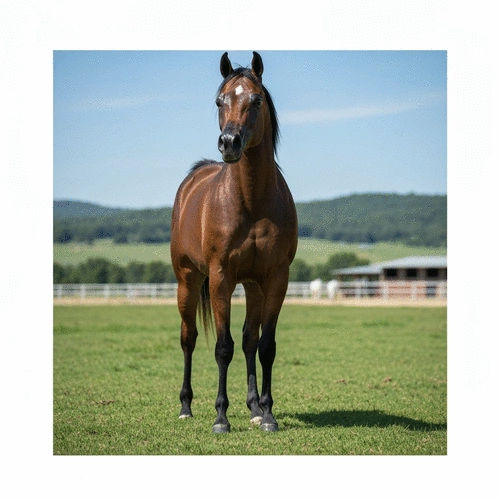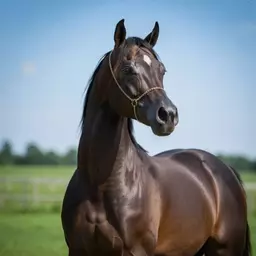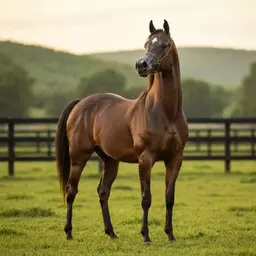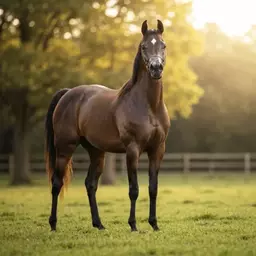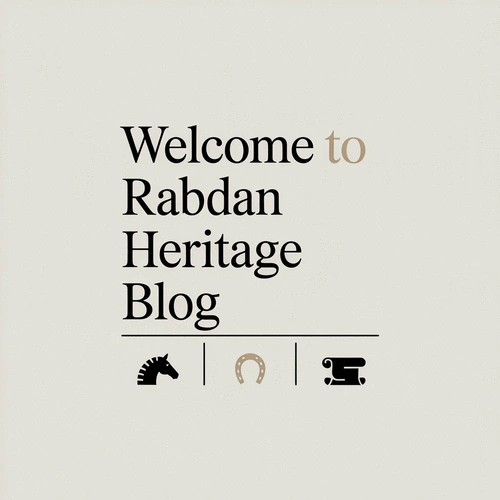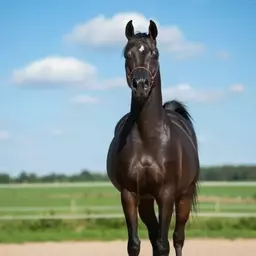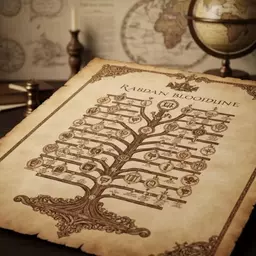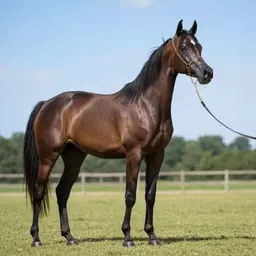Have you ever felt the thrill of witnessing the grace and power of a Rabdan Arabian horse? With a lineage steeped in history, these magnificent creatures not only embody beauty but also carry profound cultural significance. Delve into their journey and discover the remarkable traits that set them apart.
What You Will Learn
- The Rabdan Arabian horse is one of the oldest known horse breeds, tracing its roots back to the desert tribes of the Middle East.
- Bedouin tribes played a crucial role in preserving the Rabdan bloodline through selective breeding practices that emphasized stamina and loyalty.
- Unique traits of Rabdan horses include an elegant neck, strong muscular build, and exceptional intelligence, making them suitable for various equestrian disciplines.
- Maintaining genetic diversity is vital for the long-term health and vitality of the Rabdan bloodlines, preventing genetic disorders and enhancing resilience.
- The influence of Rabdan Arabian horses extends into modern breeding practices, guiding breeders to prioritize health, temperament, and ethical considerations.
Rabdan Arabian Horse Lineage and Influence
The visual below illustrates key aspects of the Rabdan Arabian horse strain, their historical context, and their ongoing impact on modern breeding practices and equestrian sports.
Historical Role
Bedouin Preservation
- Valued for companionship & warfare.
- Breeding rooted in tradition & respect.
- Legendary horses preserved.
Rabdan Characteristics
Unique Traits
- Elegant neck & refined head.
- Strong, muscular build for endurance.
- Exceptional intelligence & trainability.
Modern Influence
Breeding Focus
- Preservation of unique traits.
- Genetic contributions for health.
- Upholding cultural heritage.
Equestrian Sports
Rabdan Prowess
- Endurance riding (stamina).
- Show jumping (agility, strength).
- Dressage (gracefulness).
The Journey of Rabdan Arabian Horses Through History
As we delve into the rich tapestry of Arabian horse history, it becomes evident that the Rabdan Arabian horse holds a significant position within this narrative. Each horse tells a story of its lineage, connecting us to a time when these remarkable creatures roamed the deserts of the Arabian Peninsula. Understanding this journey not only enriches our appreciation but also deepens our connection to their legacy.
From the sandy dunes to the modern-day arena, the Rabdan bloodline has traversed centuries, carrying with it the cultural and historical weight of the Arabian horse tradition. Have you ever felt the thrill of seeing a Rabdan horse in motion, embodying both grace and history? It’s a sight that stirs a sense of pride and admiration for the legacy we are part of. In fact, a significant area in Abu Dhabi has been renamed after Sheikh Zayed’s first horse, Rabdan, underscoring its profound cultural importance.
Tracing the Roots of Arabian Horse Lineage
The lineage of the Arabian horse can be traced back thousands of years, where it began in the heart of the Middle East. Originating from desert tribes, these horses were meticulously bred for their stamina, intelligence, and beauty. Understanding this historical context allows us to appreciate the depth of the connections between horses and the people who cherished them.
- The Arabian horse is one of the oldest known horse breeds.
- They were bred by Bedouin tribes for their endurance and companionship.
- Arabian horses were key in facilitating trade and transportation across the region.
Through time, these enduring relationships between horses and humans have shaped the very identity of the Arabian breed. The ability to trace back these roots allows us to celebrate the qualities that make Rabdan horses so special today. For a deeper understanding of specific bloodlines, the "Hujjah" documentation of French desert-bred stallions sometimes reveals potential links to lines like Rabdan El Azrak.
Understanding the Historical Context of Arabian Horses
In exploring the historical context, we see how the Arabian horse has been more than just a means of transportation; they’ve been integral to cultural identity and survival. Each horse born into the Rabdan lineage is steeped in history, embodying the spirit of those who came before.
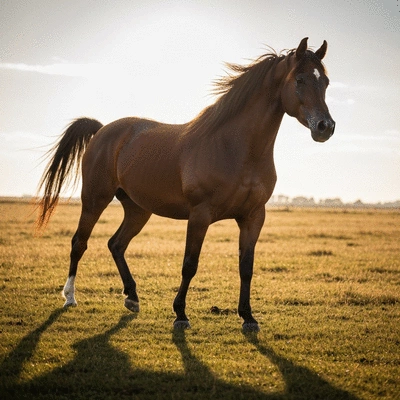
It’s fascinating to think about how these horses have influenced the development of many modern breeds, yet they remain true to their origins. The connection between past and present is crucial for us, especially as we champion the legacy of the Rabdan bloodline.
The Role of Bedouin Tribes in Preserving Horse Bloodlines
Bedouin tribes have played a monumental role in ensuring the preservation of Arabian horse bloodlines, especially the esteemed Rabdan strain. Through selective breeding practices, these tribes maintained the unique traits that define the breed, including their stamina and loyalty.
- Bedouins valued horses for their companionship and utility in warfare.
- Their breeding practices were deeply rooted in tradition and respect for the animals.
- Many legendary horses were preserved through these tribal efforts, contributing to the Rabdan legacy.
As we reflect on the importance of these tribes, it becomes clear that their dedication has allowed Rabdan horses to thrive, ensuring that their remarkable traits continue to be passed down through generations.
The Rabdan Strain: Characteristics and Significance
The Rabdan strain of Arabian horses is known for its unique characteristics, which set it apart from other bloodlines. Identifying these traits helps us appreciate the significance of this breed in the broader context of Arabian horse heritage.
Have you ever spent time observing a Rabdan horse? Their physical attributes, combined with an energetic spirit, create a mesmerizing presence that captivates all who encounter them.
Identifying Unique Traits of Rabdan Arabian Horses
Rabdan Arabian horses are distinguished by several key features that highlight their beauty and resilience. Here are a few characteristics that make them stand out:
- Elegant neck and refined head conformation.
- Strong, muscular build designed for endurance.
- Exceptional intelligence and trainability, making them suitable for various disciplines.
These traits are not merely aesthetic; they tell a story of generations of selective breeding aimed at preserving the essence of the Rabdan legacy.
How Rabdan Horses Compare to Kuhaylan and Hamdani Strains
When comparing the Rabdan strain to others, such as Kuhaylan and Hamdani, we find that each possesses distinct qualities. While Kuhaylan horses are renowned for their strength and Hamdani for their beauty, the Rabdan horses combine these traits with an unparalleled spirit. Further details on Egyptian Arabian bloodlines, which include Kuhaylan and Hamdani, can provide a broader context to these comparisons.
This unique blend makes them incredibly versatile, whether in the show ring or on a trail ride. Understanding these differences helps us appreciate the richness of Arabian horse lineage and the immense value each strain brings to the community.
The Importance of Genetic Diversity in Rabdan Bloodlines
Maintaining genetic diversity within the Rabdan bloodlines is crucial for their long-term health and vitality. This diversity not only helps prevent genetic disorders but also allows for the continuation of the breed's remarkable traits.
- Genetic diversity promotes adaptability to changing environments.
- It enhances the overall resilience of the breed.
- Preserving diverse bloodlines contributes to the breed's historical significance.
As we foster a community of Arabian horse enthusiasts, it’s essential to keep these principles at the forefront of our breeding practices to ensure the future of the Rabdan Arabian horse.
Frequently Asked Questions About Rabdan Arabian Horses
What is a Rabdan Arabian horse?
A Rabdan Arabian horse is a specific strain within the Arabian horse breed, known for its ancient lineage, unique physical traits, and significant cultural historical importance, particularly through Bedouin preservation.
Where do Rabdan Arabian horses originate from?
The lineage of Arabian horses, including the Rabdan strain, originated in the desert tribes of the Middle East, with roots tracing back thousands of years in the Arabian Peninsula.
What are the unique characteristics of Rabdan Arabian horses?
Rabdan Arabian horses are distinguished by an elegant neck, refined head conformation, a strong muscular build for endurance, and exceptional intelligence and trainability.
How did Bedouin tribes contribute to the preservation of Rabdan bloodlines?
Bedouin tribes played a crucial role through meticulous selective breeding practices, valuing these horses for companionship and warfare, and preserving their unique traits like stamina and loyalty over generations.
Why is genetic diversity important for Rabdan bloodlines?
Maintaining genetic diversity is vital for the long-term health and vitality of Rabdan bloodlines. It helps prevent genetic disorders, enhances the breed's overall resilience, and promotes adaptability to changing environments.
How do Rabdan horses influence modern Arabian breeding?
Rabdan horses significantly influence modern breeding by guiding breeders to preserve unique traits, contribute to genetic diversity for healthier foals, and uphold the cultural heritage of the Arabian breed through ethical practices.
What equestrian sports do Rabdan Arabian horses excel in?
Rabdan Arabian horses excel in various equestrian sports due to their versatility, including endurance riding (for stamina), show jumping (for agility and strength), and dressage (for gracefulness).
Engage with Us!
What aspects of the Rabdan Arabian horse legacy resonate most with you? Is it their rich history, unique characteristics, or the cultural significance they hold? Share your thoughts in the comments below, and let’s continue this journey together!
Summarizing the Enduring Legacy of Rabdan Arabian Horses
The legacy of Rabdan Arabian horses is not only a testament to their magnificent beauty but also a profound influence that continues to shape the world of equine culture today. As we explore how the essence of the Rabdan strain connects to modern breeding practices, it becomes clear that these horses have left an indelible mark on the Arabian horse community. Their storied past informs contemporary breeding decisions while inspiring horse lovers and breeders alike.
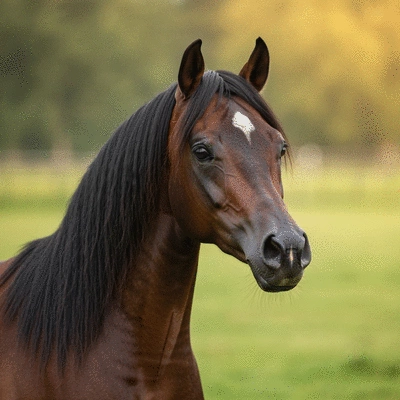
In my journey as an equestrian and historian, I’ve witnessed firsthand the deep respect and admiration for the Rabdan bloodline. This reverence is more than nostalgia; it is a commitment to preserving the traits that define these remarkable horses. By examining their impact on modern purebred Arabian breeding, we can appreciate the Rabdan influence that flows through the veins of these horses today.
Connecting Past and Present: The Rabdan Influence
The Rabdan Arabian horses have played a significant role in shaping the landscape of modern Arabian horse breeding. As breeders focus on enhancing desirable traits, they often look to the Rabdan lineage for guidance. Here are a few ways Rabdan horses influence contemporary breeding:
- Preservation of Unique Traits: Breeders strive to maintain the distinctive qualities that make Rabdan horses exceptional, such as their intelligence and endurance.
- Genetic Contributions: The genetic diversity offered by Rabdan horses has become invaluable in creating robust and healthy foals in today’s breeding programs.
- Cultural Heritage: The historical significance of the Rabdan bloodline encourages breeders to uphold traditional practices, further enriching the breed's legacy.
By understanding these contributions, we can see how the Rabdan horses not only connect to their past but also pave the way for future generations of Arabian horses. It is a cyclical journey of respect, learning, and progression in the equine world.
How Rabdan Horses Shape Modern Purebred Arabian Breeding
One of the most fascinating aspects of Rabdan horses is their impact on breeding practices. Breeders today are increasingly recognizing the importance of ethical considerations in their work. This involves not just the selection of traits but also the commitment to breeding for health, temperament, and vitality. Here are some ethical aspects that modern breeders focus on:
- Health Screening: Ensuring horses undergo thorough health checks to prevent hereditary issues from being passed down.
- Responsible Breeding: Prioritizing the welfare of the horses over profit margins, which aligns with the values of the Rabdan community.
- Community Engagement: Encouraging shared knowledge among breeders and enthusiasts, fostering a richer understanding of Arabian horse heritage.
These practices not only honor the Rabdan lineage but also ensure that future generations of horses thrive in both health and character.
Engagement and Further Learning Opportunities
At Rabdan Heritage Blog, we believe in the power of community and shared experiences. As we celebrate the enduring legacy of Rabdan Arabian horses, we invite you to join the conversation. What stories do you have about your own encounters with these noble creatures?
Your insights enrich our understanding and appreciation of this magnificent breed. Let’s come together to explore the vast world of Arabian horse heritage, sharing our experiences and insights to cultivate a vibrant community.
Join the Conversation on Rabdan Arabian Horses
Engagement is crucial in fostering a love for the Rabdan Arabian horses. Here are ways you can share your thoughts:
- Comment on Blog Posts: Let us know your experiences and any questions you may have about Rabdan horses.
- Participate in Online Forums: Join discussions with fellow enthusiasts and share your knowledge.
- Attend Local Events: Connect with breeders and horse lovers in your area to learn and share more.
Every voice adds richness to our collective journey in understanding these majestic horses and their storied heritage.
Resources for Further Exploration of Arabian Horse Heritage
For those who want to dive deeper into the world of Arabian horses, we’ve curated a list of resources that can enhance your understanding:
- Books on Arabian Horse History: Explore texts that detail the fascinating lineage and stories of these incredible animals.
- Online Courses: Consider courses that focus on breeding practices, horse care, and the cultural significance of Arabian horses.
- Documentaries: Watch films that showcase the beauty and heritage of Arabian horses, including their role in various cultures.
These resources can provide valuable insights and foster a greater appreciation for the Rabdan Arabian horse legacy.
Exploring Equestrian Sports Involving Rabdan Arabian Horses
The Rabdan Arabian horses are not only cherished for their lineage but also celebrated for their prowess in various equestrian sports. From endurance riding to dressage, these horses shine in competitions. Here are some popular disciplines where Rabdan horses excel:
- Endurance Riding: Known for their stamina, Rabdan horses are often seen conquering long-distance events.
- Show Jumping: Their agility and strength make them formidable competitors in this exciting sport.
- Dressage: The gracefulness of Rabdan horses allows them to perform beautifully in this artistic discipline.
Participating in these sports not only showcases their skill but also highlights the rich heritage and capabilities inherent in the Rabdan Arabian bloodline.
Recap of Key Points
Here is a quick recap of the important points discussed in the article:
- The Rabdan Arabian horse has a rich history that connects modern equestrian practices to ancient traditions.
- Bedouin tribes played a crucial role in preserving the unique traits of the Rabdan bloodline through careful breeding practices.
- Rabdan horses are distinguished by their elegant conformation, strong build, and exceptional intelligence.
- Maintaining genetic diversity within Rabdan bloodlines is vital for their long-term health and adaptability.
- Modern breeders are focusing on ethical considerations, emphasizing health, welfare, and community engagement.

